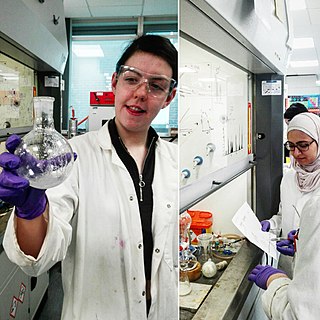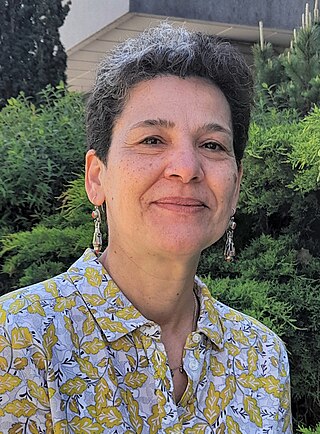Sustainable development is an approach to growth and human development that aims to meet the needs of the present without compromising the ability of future generations to meet their own needs. The aim is to have a society where living conditions and resources meet human needs without undermining planetary integrity. Sustainable development aims to balance the needs of the economy, environment, and social well-being. The Brundtland Report in 1987 helped to make the concept of sustainable development better known.

The United Nations University (UNU) is the think tank and academic arm of the United Nations. Headquartered in Shibuya, Tokyo, Japan, with diplomatic status as a UN institution, its mission is to help resolve global issues related to human development and welfare through collaborative research and education.

The United Nations Environment Programme (UNEP) is responsible for coordinating responses to environmental issues within the United Nations system. It was established by Maurice Strong, its first director, after the United Nations Conference on the Human Environment in Stockholm in June 1972. Its mandate is to provide leadership, deliver science and develop solutions on a wide range of issues, including climate change, the management of marine and terrestrial ecosystems, and green economic development. The organization also develops international environmental agreements; publishes and promotes environmental science and helps national governments achieve environmental targets.

UN Trade and Development (UNCTAD) is an intergovernmental organization within the United Nations Secretariat that promotes the interests of developing countries in world trade. It was established in 1964 by the United Nations General Assembly (UNGA) as the United Nations Conference on Trade and Development but rebranded to its current name on the occasion of its 60th anniversary in 2024. It reports to both the General Assembly and the United Nations Economic and Social Council (ECOSOC). UNCTAD is composed of 195 member states and works with non-governmental organizations worldwide; its permanent secretariat is at UNOG in Geneva, Switzerland.

The European Organization for Nuclear Research, known as CERN, is an intergovernmental organization that operates the largest particle physics laboratory in the world. Established in 1954, it is based in Meyrin, western suburb of Geneva, on the France–Switzerland border. It comprises 23 member states. Israel, admitted in 2013, is the only non-European full member. CERN is an official United Nations General Assembly observer.
A United Nations General Assembly resolution is a decision or declaration voted on by all member states of the United Nations in the General Assembly.

The International Union of Pure and Applied Physics is an international non-governmental organization whose mission is to assist in the worldwide development of physics, to foster international cooperation in physics, and to help in the application of physics toward solving problems of concern to humanity. It was established in 1922 and the first General Assembly was held in 1923 in Paris. The Union is domiciled in Geneva, Switzerland.

The Joint Institute for Nuclear Research, in Dubna, Moscow Oblast, Russia, is an international research center for nuclear sciences, with 5500 staff members including 1200 researchers holding over 1000 Ph.Ds from eighteen countries. Most scientists are scientists of Russian Federation.
The United Nations Human Settlements Programme (UN-Habitat) is the United Nations programme for human settlements and sustainable urban development. It was established in 1977 as an outcome of the first United Nations Conference on Human Settlements and Sustainable Urban Development held in Vancouver, Canada, in 1976. UN-Habitat maintains its headquarters at the United Nations Office at Nairobi, Kenya. It is mandated by the United Nations General Assembly to promote socially and environmentally sustainable towns and cities with the goal of providing adequate shelter for all. It is a member of the United Nations Development Group. The mandate of UN-Habitat derives from the Habitat Agenda, adopted by the United Nations Conference on Human Settlements in Istanbul, Turkey, in 1996. The twin goals of the Habitat Agenda are adequate shelter for all and the development of sustainable human settlements in an urbanizing world.
The United Nations Conference on the Human Environment was held in Stockholm, Sweden, during June 5–16, 1972.

The World Academy of Art and Science (WAAS), founded in 1960, is an international non-governmental scientific organization and global network of more than 800 scientists, artists, and scholars in more than 90 countries.

UNOSAT is the United Nations Satellite Centre. It is hosted at the United Nations Institute for Training and Research (UNITAR), with the mission to promote evidence-based decision making for peace, security and resilience using geo-spatial information technologies. UNOSAT provides the United Nations funds, programmes and specialized agencies with satellite analysis, training and capacity development, at their request. UNOSAT also supports the UN Member States with satellite imagery analysis over their respective territories and provides them with training and capacity development in the use of geospatial information technologies.

United Nations General Assembly Resolution 68/262 was adopted on 27 March 2014 by the sixty-eighth session of the United Nations General Assembly in response to the Russian annexation of Crimea and entitled "territorial integrity of Ukraine". The nonbinding resolution, which was supported by 100 United Nations member states, affirmed the General Assembly's commitment to the territorial integrity of Ukraine within its internationally recognized borders and underscored the invalidity of the 2014 Crimean referendum. Eleven nations voted against the resolution, while 58 abstained, and a further 24 states were absent when the vote took place.

The Republic of Kazakhstan became a member of the United Nations on March 2, 1992. Kazakhstan was elected to serve on the UN Security Council for the 2017–2018 term. UN Secretary-General António Guterres in remarks to the UNSC recognized Kazakhstan's work to rid the world of weapons of mass destruction and global non-proliferation efforts.

The International Year of Indigenous Languages was a United Nations observance in 2019 that aimed to raise awareness of the consequences of the endangerment of Indigenous languages across the world, with an aim to establish a link between language, development, peace, and reconciliation.

Michel Spiro is a French physicist.

The International Day of Women and Girls in Science is an annual observance adopted by the United Nations General Assembly to promote the full and equal access and participation of women in Science, Technology, Engineering and Mathematics (STEM) fields. The United Nations General Assembly passed resolution 70/212 on 22 December 2015, which proclaimed the 11th day of February as the annual commemoration of the observance. A theme is selected annually to highlight a particular focus and area of discussion around a focus point for gender equality in science.
The International Year of Basic Sciences for Sustainable Development was proclaimed by the 74th session of the United Nations General Assembly in 2019 for 2021. The stated goal was to "promote sustained and inclusive economic growth, foster innovation and provide opportunities, benefits and empowerment for all and respect for all human rights."

Faïrouz Malek also known as Faïrouz Ohlsson-Malek is a French and Algerian physicist specializing in nuclear physics, particle physics and cosmology. A research scientist at the French National Centre for Scientific Research, she is involved in international research at the CERN LHC. She has contributed to the discovery of the Higgs boson. She is also known for her commitment to gender parity in science, as well as to the development of science in Africa. She is fellow of the African Academy of Sciences. She is the niece of Algerian composer Ahmed Malek.
The following lists events that happened with or in collaboration with the United Nations and its agencies in the year 2022.














